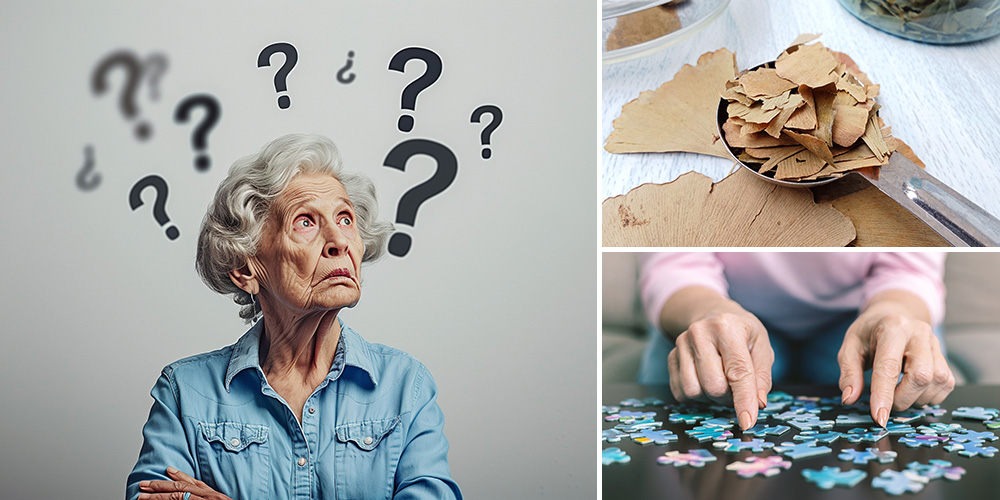
#1 Herb That Fights Dementia
Dementia is a brain-related disease that is always associated with the elderly and their aging brain. But, did you know that dementia can also happen to anyone of all ages?
According to the Alzheimer Society, although age is the biggest factor, “young onset dementia” can occur in people below the age of 65. It is rare, but individuals in their 20s and teenagers can suffer from childhood dementia from various causes.
What Causes Dementia?
Dementia is a brain condition involving memory and mental decline. It affects communication, language, visual perception, focus, and reasoning. Dementia also affects behavior where a person shows inappropriate actions and neglects personal care.
It can happen because of an injury to the brain, a degenerative disorder, or genetic reasons.
There are many different types of dementia aside from childhood and young onset dementia. It includes:
- Alzheimer’s disease occurs due to beta-amyloid plaque accumulation in the brain.
- Vascular dementia happens when the blood flow to the brain is restricted.
- Parkinson’s disease is a degenerative disorder that results from the loss of nerve cells.
- Lewy body is a visual hallucination with symptoms similar to Alzheimer’s and Parkinson’s.
- Huntington’s disease is hereditary and caused by gene mutation.
- Creutzfeldt Jakob Disease (CJD) is caused by an abnormal infectious protein called prions.
- Pick’s disease is common in women affecting their personality, behavior and social skills.
- Alcohol-related brain injury (ARBI)
# 1 Food/Herb That Fights Dementia
There is currently no cure or prevention of dementia. They can only be slowed down through therapies and lifestyle changes.
A healthy brain lifestyle can be achieved by staying physically and socially active, avoiding smoking and alcohol, and eating healthy. It also helps to avoid activities that risk head injury and have yourself checked by a doctor regularly.
A healthy diet is also key in delaying the onset of dementia. Leafy greens, berries, whole grains, beans, nuts, fish, and olive oil are brain foods that help mitigate the risks of neurodegenerative diseases.
Researchers also work to find the best alternative treatment option for dementia through herbs and supplements. Among the promising medicinal plants, particularly for Alzheimer’s disease, is the Ginkgo Biloba.
I learned so much about the human brain and the disorders we all risk developing such as Alzheimer’s, Dementia, Anxiety, Stress, Depression, Parkinson’s, and other conditions… from the best wellness guide out there.
It made me thrive and taught me everything I need to know to keep my brain healthy with the way I live. The author is a living example of the holistic way of being superior, and I even felt it on my own once I tried it. Here’s what you’ll find inside!
Medicinal Properties of Ginkgo Biloba
Ginkgo (Ginkgo biloba) is a well-researched herb for treating cognitive disorders and circulatory problems. In fact, it is one of the best-selling herbal supplements in the United States and Europe for blood disorders and memory issues.
It has been used for many centuries in Traditional Chinese Medicine and emulated in some Western medicines. It is beneficial in the early stages of vascular dementia to improve blood circulation to the brain and prevent it from worsening.
Ginkgo biloba has the following medicinal properties that are very useful in counteracting the symptoms of dementia.
Antioxidant
The high levels of flavonoids and terpenoids in ginkgo leaf, root and bark have strong antioxidant effects. These bioactive components scavenge reactive oxygen species (ROS), antagonize oxidative damage and protect the neurons to enhance memory and cognitive functions.
The first brain antioxidant I used was Lemon Balm. At that time I didn’t know what it actually does, but it also inhibits the brain’s levels of acetylcholinesterase (AChE), an enzyme that helps break down acetylcholine (Ach), a critical neurotransmitter involved in cognition and memory[NA14]; reduced levels of acetylcholine have been associated with Dementia, Parkinson’s, and Alzheimer’s.
It sounds so complicated, I know. It did so for me as well. To sum it up, it makes you feel great! And it’s a shield against cognitive decline. Just a few drops of this Lemon Balm Tincture and you’ll feel the difference as I did!
Anti-Inflammatory
Neuroinflammation is linked to an increased risk of cognitive decline. Studies show that ginkgo biloba leaf extract possesses excellent anti-inflammatory properties that can reduce inflammation in many aspects including primary microglia.
Circulatory
Ginkgo biloba is a blood thinner and vasodilator that helps improve circulation activity and prevent related diseases. Ginkgo contains compounds that dilate the blood vessels to enable blood to flow freely throughout the body including the brain.
Nootropic
Nootropic herbs alter the neurochemistry to enhance all aspects of brain functions. A randomized placebo-controlled study on ginkgo biloba extract showed significant improvements in information processing speed and memory in different dementia types.
Nervine
Gingko biloba acts as a nervine that stimulates, calms and strengthens the nervous system. It produces a sedative effect to help the brain and body relax and relieve anxiety and irritation.
If you have trouble focusing, or you feel like your brain is overactive… always thinking of something that bothers you… it’s not normal! It’s not okay to be stressed, irritated or anxious!
The worst thing you could do is to take their lab-made pills filled with chemicals. Nature is the best supermarket and the only one I recommend. Organic pesticide-free herbs are what will actually help clear brain fog and find that peaceful feeling.
The Anti-Anxiety & Stress tincture made by the best herbalist herself is what made me thrive and enjoy a stress-free life. Just look at what people say about it:
Memory Enhancer
Taking ginkgo biloba supplements may greatly impact the functions of the neurotransmitters. A study conducted on mice shows that ginkgo biloba leaf extracts improve cognitive function and increase neurogenesis, although findings are yet to be established in humans.
Neuroprotective
The neuroprotective properties of ginkgo biloba extract protect neurons against death from various causes. It reduces neuronal damage and improves cell tolerance to prevent the worsening of neurodegenerative diseases.
Other Food and Herbs That May Counter Dementia
While there is no proven treatment for dementia, many foods and herbs can help slow it down and prevent it from worsening.
Some of the foods that boost your brainpower include:
- Bacopa (Bacopa monnieri). It promotes cognitive memory and slows down premature brain decline.
- Gotu kola or Indian pennywort (Centella asiatica). It is like Bacopa but is more preventive than curative.
- Ashwagandha or Indian ginseng (Withania somnifera). It is an adaptogen that improves the function and learning power of the brain.
- Korean ginseng (Panax ginseng). It is a mental stimulant that may improve the cognitive functions of the elderly.
- Lion’s mane mushroom. It may improve mild cognitive impairment and boost neurological health.
- Reishi mushroom. Reishi exhibits a therapeutic potential against Alzheimer’s disease.
- Saffron (Crocus sativus). It is a memory enhancer that may suppress the deposition of amyloid beta in the brain which causes dementia.
- Lemon Balm (Melissa officinalis). Maintains brain balance and enhances the memory and learning process.
Have you ever forgotten where you put your keys or the remote control, or where you parked your car at the mall?
These are the first signs that your memory might be in decline. When I first felt these signs I took action and made sure my body counters cognitive decline the best way possible.
This is why… if you don’t have the time, the tools, or the place where you can source the herbs above, you can purchase the same remedies with the same ingredients from here. It’s made by one of America’s top herbalists, and all the herbs in it are either wild-harvested or organically grown – which not a lot of supplements can claim!
Ginkgo Biloba Tea
Support your brain health by taking a cup of freshly brewed ginkgo biloba tea. You may use fresh ginkgo leaves. But if it is not available, you can still get a potent cup from dried herbs sold in online herbal stores.
 Ingredients
Ingredients
- 1 tbsp dried ginkgo biloba leaves, shredded
- 2 cups freshly boiled water
- 80 drops of Lemon Balm Tincture
Steps
- Put the ginkgo leaves in a pot or tea infuser.

- Pour freshly boiled water.

- Steep for 10 minutes and serve while warm.

To use: Drink a cup once or twice a day. It may take at least 4 weeks for the herb to work.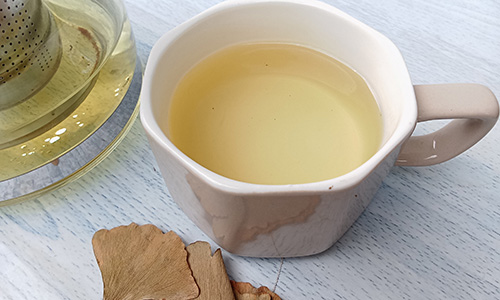
Ginkgo biloba tea can be taken for a long time if you have no existing health conditions. You can also check with a qualified health professional on its dosage and duration of use.
I found this information in a book a friend gave me. It was so useful that I got myself a copy too. It’s Nicole Apelian’s book, The Holistic Guide to Wellness.
It’s a comprehensive guide containing 45 research-backed, holistic protocols designed to address various physical and mental health concerns.
You’ve got everything you need to do, morning, afternoon, and evening, every day of the week, to follow in Dr. Nicole Apelian’s footsteps. It also includes the recipes for natural remedies she has not disclosed before anywhere else.
Truth is, it was a wise choice that I made. You won’t need to look for answers in different places.
It feels like you have your own personal health coach by your side, ready to help with everything that ails you!
There are so many amazing things in the Alzheimer’s protocol alone, and I’m sad that, because of the word count, I couldn’t fit them all in the article. But here’s a sneak peek at the rest:
- The Little-Known Fruit That Can Regulate Your Sleeping Schedule
- How To Reverse Brain Damage to Youth Brain Health
- The Tell-Tale Signs of Diabetes in the Brain
- What Happens To Your Brain If You Play Monopoly Every Day
- Think Sleeping on Your Back is a Good Idea? WRONG! Here Is Why You Should Sleep on Your Left Side
- Learn What Dangerous Pills on The Market Today You Should Avoid at All Costs
- How to Use “Plant Sweat” to Reduce Brain Damage
- What Heart Disease, Alzheimer’s, and cancer All Have in Common as a Starting Point and Why There is a High Chance You’re Affected by It Right Now
…and so many others!
Nicole Apelian put together a presentation for you describing all of them. You can watch it here.


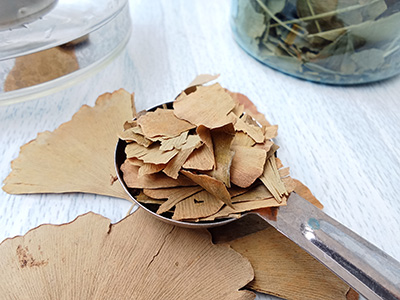 Ingredients
Ingredients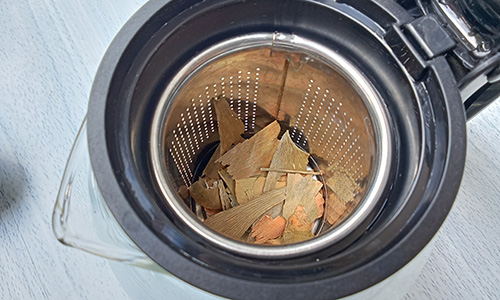
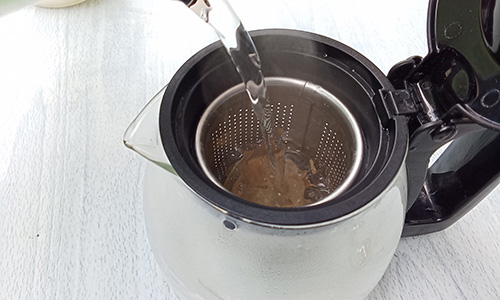
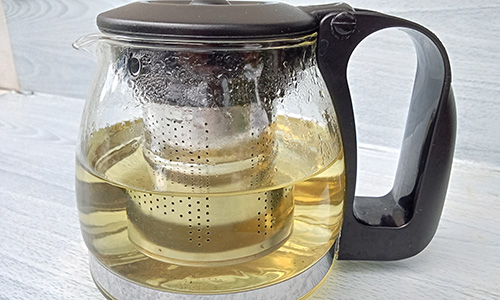
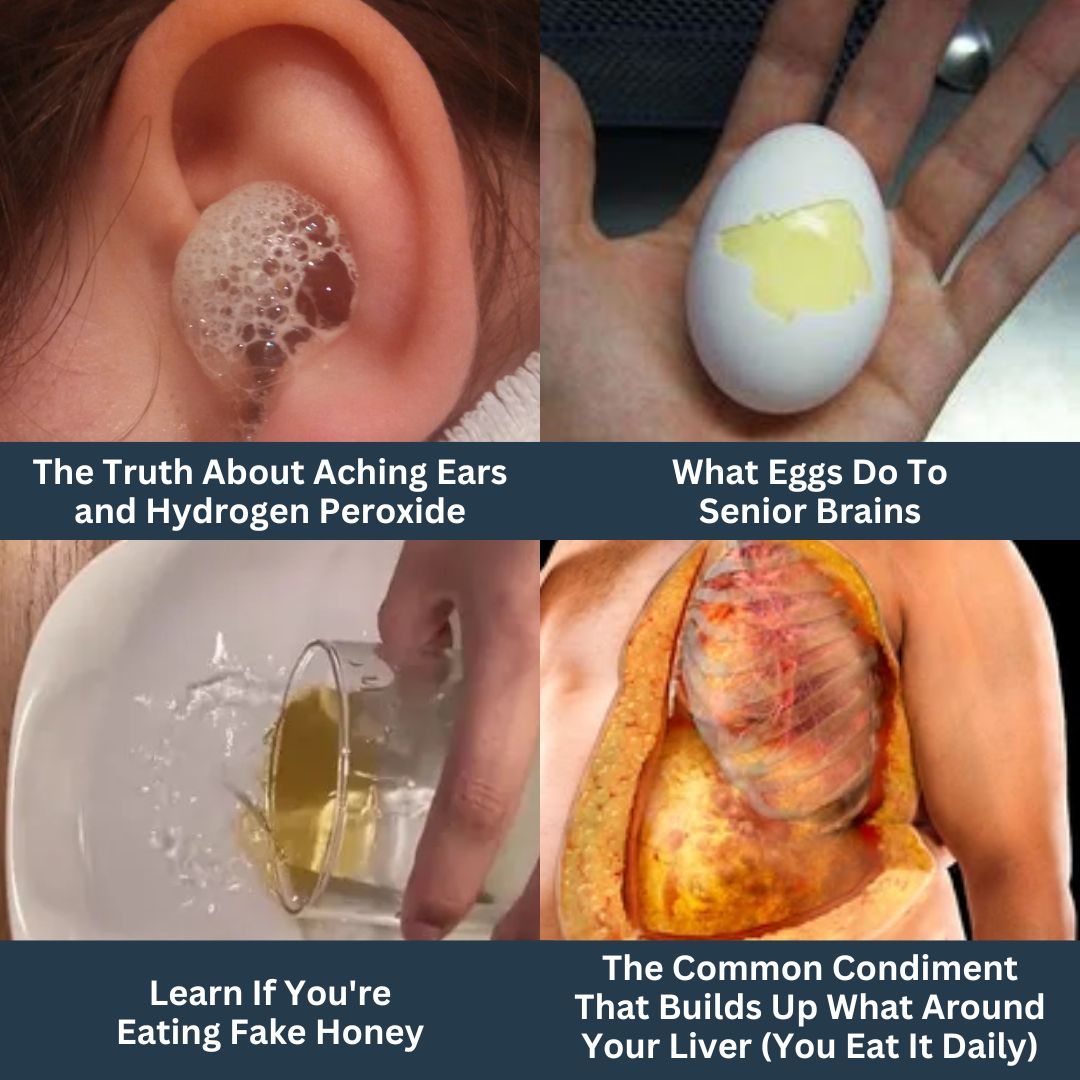
“There is currently no cure or prevention of dementia. They can only be slowed down through therapies and lifestyle changes.”
The above statement is right out of the medical world’s incompetency and unwillingness to help people unless they have some chemical drug the human body is not built to assimilate, that can be patented for the profits of the drug cartels and their minions. There have been many studies completed, and hidden by the drug cartels, yet some have gotten out, uncovered and published that have proven eating fermented foods will not only prevent or stop the progression of dementia and it’s various forms, but completely reverse even people in the most severe cases that the medical world has given up on, and returned them to normal functioning human beings again. Whether one’s choice of fermented food is the juice from a dill pickle jar, to sauerkraut, kefir, kimchi, or any other form of fermented food one chooses, or any mixture, it has wonderful help for the human body. There are wonderful pro and prebiotics in fermented foods that help the digestive system, but right from the mouth they also enter the blood system and can make their way even more quickly to the brain to help dissolve the crystals around the neurons in the brain that cause dementia, Parkinson’s, etc. When the brain can no longer communicate with other parts of the brain, it will die.
There are easy ways to make your own sauerkraut. I make mine all the time, by the quart jar. A crock isn’t required, though surely can be used if one has the space to store it and the time to fill it with kraut to let it ferment. In the quart jar form, it only takes a couple of weeks to have the kraut ready to eat. I also make my own pickles, I make refrigerator dill pickles. A swallow of dill pickle juice per day when the pickles are gone is wonderful fermented food, a wonderful help for the gut and the brain. There are recipes online for how to make most any other type of fermented food as well. It is another form of alternative medicine than just gathering and foraging leaves, roots, flowers, fruits that grow in the wild.
Not saying a word against any of the herbs listed in this article, but they are FAR from the only help for dementia.
My own story with dementia. My mother died at 92 and had suffered from dementia from the time she was in her late 40’s to early 50s’. Not too many years after she’d stopped making sauerkraut for the winter to preserve the cabbage we raised in the garden. I had lots of years to witness the progression of her dementia and no one with any authority in the family opted to try to help her in any way, just put up with it. The time came in my 50’s I found out I had a brain tumor, it was large, 4 inches long by 1.25″ wide. Health had been headed down hill for years before finding out I had the tumor. I had believed I was beginning to suffer from dementia as well, and I could have been, I don’t know. I do know that after the surgery to remove the tumor mental processes were greatly decreased, troubleshooting or problem solving was almost nonexistent and it would take from weeks to years to recognize something as a problem much less tying to find a solution to fix the problem. During that time I was very aware that dementia was setting in and having been taught as a child, if you have a problem, you find the solution to it and fix it, I started doing research, trying to find any sort of help for dementia that might be available. I began finding articles about fermented foods being a help, not only to stop but to reverse dementia. Found a recipe online for making sauerkraut by the quart jar and began making my own. I let my body dictate how much I needed to eat and for a while it was a lot, I’d easily eat 3 cups per day if it was available. For a few months I has a counter full of quart jars constantly in the making. During those months the change I felt was incredible. Problem recognition to solving/troubleshooting turned from weeks up to years into days into weeks, and from days into weeks down into recognizing there was a problem and having a solution almost immediately. The need for eating kraut (I like kraut, which is why I chose it, and it’s easy and fairly cheap to make) became less and less until between the various forms of eating fermented foods now, the maintenance dose for me has become about two servings per week. Seeing problems now that I would never have dreamed before of trying to solve/fix myself and now trying to solve/fix things I’ve never attempted before is a wonderful feeling. So, when I talk about eating fermented foods as a fix/cure for dementia, I’m speaking from experience, not just what I’ve read. It’s been wonderful to see others with problems have their families care enough about them to begin feeding them a lot of fermented foods and to see the drastic difference in their well-being has been incredible too.
Your opening statement describes EXACTLY how I feel, and I hate hearing or reading anything to this effect. We DO KNOW and have seen so many miraculous recoveries and healings by nature’s medicines, faith, and other things. We do not know everything, and far from it, the more we learn, the more we realize HOW LITTLE we know. There are healing modalities which range from sound, to light to frequencies, yet “modern” medicine ignores most other things besides what will usually make THEM rich. Ever since our “health” industry was hijacked in the early 1900’s (for the most part) in the US, we have regressed severely. I will commend the advancement in some surgeries, etc. but I no longer think the “health” profession is in the business of curing and helping people at all. They are in the business of helping themselves become rich.
Gingko is NOT an herb. It is a botanical medicine, not an herb.